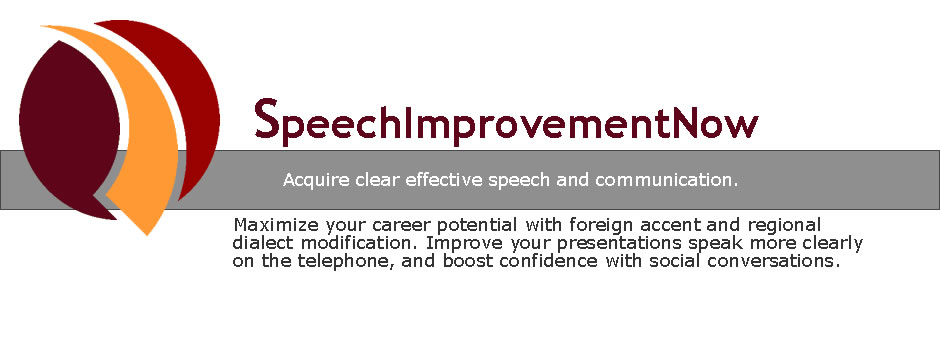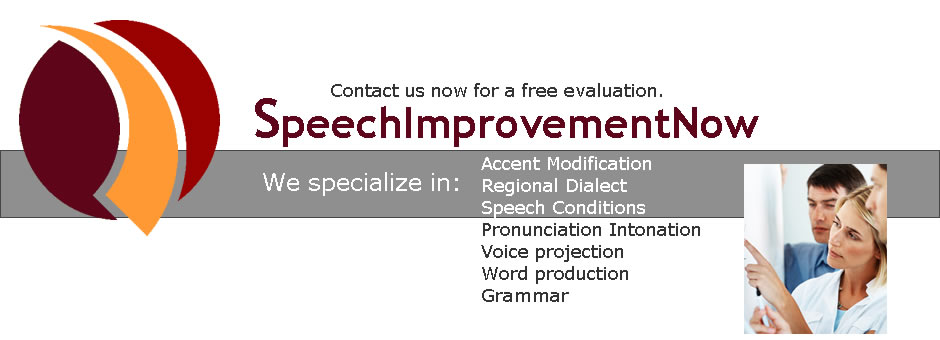Interview with Ela Britchkow
Communication Specialist and Speech and Language Pathologist:
Q: Tell me about your own background and qualifications.
A: I have over 30+ years of experience as a speech and language pathologist enhancing clients’ speech and communication skills.I have specialized training in accent and regional dialect reduction resume. My own background is a testament that anyone can improve their accent and escape
unwanted attention to the way they speak. I have personally experienced how it feels to relocate to a new country, learn a new culture, and a new language.
English is my fourth language. I lived in Israel and Belgium before my family moved to New Jersey. I came to the United State when I was 10 years old.
Although it is easier to overcome an accent when you are a child, I still maintained it up to adulthood. People were in the past constantly asking me,
“Where are you from?” One of my languages is French and using a different phrase pattern was often noticeable in my school papers in addition to spelling
mistakes of words that were similar in French and English.
Like many who want to reduce their accent to further their careers or educational opportunities I found myself desperately needing to do so in graduate school,
where I majored in speech and language pathology. I had an ogre of an instructor who threatened to throw me out of the program if I did not fix the /r/ sound over the weekend!
I was taking a class in Articulation Therapy wherein each student was assigned a sound and had to present the therapy program to the class.
I was assigned the /r/ sound (a problem for me because of the other languages I spoke before learning English). I didn’t know about accent modification at the time.
Looking back I wish that I had a speech sound assessment that pointed out which sounds I mispronounced and a program that showed me how to correct them.
After the instructor threatened me I went home crying and feeling desperate. A friend of mine who was also in the speech department came over and we practiced intensely the entire weekend.
I learned how to produce the /r/ sound in isolation and then practiced and recorded long lists of words and sentences. I replayed the recordings so that I could hear how
I pronounced the words and worked on my mistakes. When I concentrated on the correct production of the /r/ it sounded correct and American. When I arrived in class on Monday,
I presented the /r/ program and passed the assignment. Of course using the /r/ in conversation was much more difficult, but with determined practice
I achieved this also. Being in a graduate speech program was a great advantage to me and I knew a lot already because of my academic training.
I vowed then to find a way to support others with a much easier, practical, effective program for accent/regional modification. To learn more about my qualification and experience, view my resume.
Q: Is it too late for me as an adult to change my accent and pronunciation?
A: You can learn a new accent as an adult, such as Standard American English. However, you’ll probably retain some of your original way of speaking. This should not interfere with your clear and effective communication. The important considerations are:
- You must have the desire to change.
- Take full advantage of our training and study materials
- Have a willingness to do the required amount of practice
Q: What is involved in Accent Modification Therapy?
A: I generally begin by recording and evaluating the reading of words, sentences and paragraphs. I will also record conversational speech. When the analysis is completed, I will help the client establish goals and will develop a program to help meet these goals. A course can be conducted in a small group, in individual sessions or through Skype video sessions.
Q: Is it only about speech sounds?
A: No, I also assess the client’s pitch, stress, duration and rate of speech as these components carry up to 70% of the message. If you don’t get the word stress right, it will change the entire meaning of what you want to relate. It is more difficult to understand someone with an accent when they speak rapidly. I will teach you methods of how to reduce your rate and how to produce the melody of the English Language. We will work on whatever your needs are. If you need work on producing grammatical sentences, understanding idioms, etc. My program also includes job-related terminology, role playing of important business and social encounters and telephone interactions.
Q: How much will I improve?
A: The effectiveness of Accent Modification Therapy depends on the ability and motivation of the client. Most people never lose their accent completely, but rather “code-switch” or turn it on and off at will. A 50% to 70% reduction in one’s foreign accent is typical after the basic introductory course. This could be quite sufficient to meet your needs. You always have the option of advanced training.
Q: How is Accent Reduction Therapy Different from English as a Second Language?
A: English as a Second Language (ESL) focuses on teaching clients a new language which includes vocabulary and producing grammatically correct sentences. Accent Modification therapy teaches clients a new sound system. In order to be enrolled in Accent Modification Therapy, clients should be proficient in the language (in our case English) in which they wish to eliminate the accent.
Q: Why should I enroll in Accent Reduction Therapy?
A: Participants for foreign accent Modification come from all walks of life: accountants, attorneys, teachers, college students, computer programmers, CEO’s, physicians engineers, physicians, sales people, secretaries, supervisors, receptionists, etc. People may decide to pursue accent/dialect modification for different reasons, these include: broadening career perspectives, increasing effectiveness of speech, or enhancing interpersonal communication skills. In my own case, accent reduction was necessary in order to complete my graduate program. Whatever your motivation we would welcome the opportunity of helping you to excel with your communication skills.






